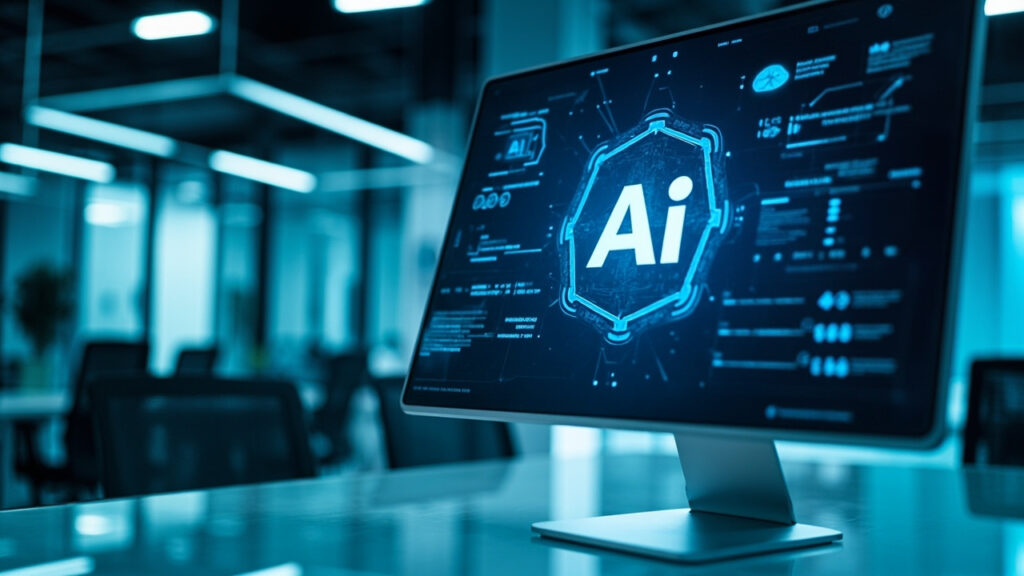In the swiftly evolving domain of software development, the pivotal role of quality assurance and testing has been brought to the forefront. As applications grow in complexity and user demands escalate, traditional testing methods are increasingly found wanting. It is within this challenging environment that artificial intelligence (AI) emerges as a transformative force, bringing about radical enhancements in efficiency and precision to software testing practices. This comprehensive exploration delves into the ways AI is reshaping software testing, addresses the prevailing challenges, and forecasts the future trajectory of this technology within the testing sector.
The integration of AI-driven tools into software testing is revolutionizing the landscape, rendering processes faster, more scalable, and more efficacious. By adopting AI in their testing strategies, organizations can not only elevate the quality of their products but also achieve significant reductions in costs and time-to-market. This blog post will provide deep insights into the applications of AI in testing, help understand its benefits, and illustrate how advanced platforms like GenQE are spearheading this transformation.
By the conclusion of this article, you will have a thorough understanding of the critical role AI plays in software testing and how leveraging these technologies could be advantageous for your organization.
The Current State of Software Testing

The realm of software testing has traditionally been a bottleneck in the development process, primarily due to its labor-intensive and time-consuming nature. However, with the advent of AI, a dramatic shift in the landscape is underway.
The Traditional Challenges
Ensuring that applications perform as expected and are devoid of defects is crucial for user satisfaction and operational success. However, traditional testing methods encounter numerous challenges:
- **Manual Labor Intensity**: Manual testing, while necessary, requires substantial human effort and is susceptible to errors.
- **Time Constraints**: Comprehensive testing often extends timelines, delaying product launches.
- **Complexity of Modern Applications**: Contemporary applications feature heightened complexity, demanding extensive testing that traditional methods struggle to provide.
How AI is Addressing These Challenges
AI and machine learning (ML) technologies are now being employed to automate intricate testing processes. AI algorithms possess the ability to learn from data, predict outcomes, and automate repetitive tasks, which not only accelerates the process but also diminishes the likelihood of human error.
AI-Powered Testing Platforms
Innovative platforms like GenQE leverage AI to enhance various facets of testing:
- **Automated Test Case Generation**: AI can scrutinize application data to autonomously generate test cases, thereby covering more scenarios with reduced effort.
- **Smart Test Execution**: AI systems can prioritize tests based on risk analysis and potential impact, ensuring that critical issues are addressed promptly.
- **Self-Healing Test Scripts**: AI capabilities allow for automatic updates to test scripts when modifications occur within the application, thus minimizing maintenance overhead.
The Role of AI in Enhancing Test Automation

Test automation is an essential component of modern software testing strategies, and AI significantly amplifies its capabilities by making it smarter and more adaptive.
Enhancing Test Coverage and Accuracy
AI-driven test automation tools can perform thorough analyses of application data to pinpoint areas requiring extensive testing. By interpreting user interactions and performance data, AI can formulate detailed test cases that address edge cases often overlooked by human testers.
Real-World Example
Imagine an e-commerce platform requiring comprehensive testing. An AI-powered tool like GenQE could autonomously generate test scripts based on real customer interaction data, ensuring rigorous testing of all functionalities, including cart additions, checkout processes, and payment integrations.
Reducing Time and Effort
AI-driven automation markedly reduces the time needed to conduct repetitive tests, allowing teams to allocate more resources towards tackling complex testing scenarios. This efficiency not only accelerates the development cycle but also aids in early defect detection, thereby reducing the costs associated with late-stage bug fixes.
Integrating AI with Continuous Integration/Continuous Deployment (CI/CD)

The incorporation of AI tools into CI/CD pipelines signifies a profound shift in software development and deployment methodologies. This integration facilitates continuous testing, which is integral to agile development practices.
The Importance of AI in CI/CD
Continuous testing ensures that any modifications to the codebase are automatically subjected to tests, substantially reducing the likelihood of defects reaching the production environment. AI enhances this process by swiftly adapting to changes and providing timely feedback.
GenQE’s Role in CI/CD
GenQE seamlessly integrates with prevalent CI/CD tools such as Jenkins and GitHub Actions. This integration ensures that automated tests are triggered with each code commit, and the resultant test data informs decision-making regarding code deployments.
AI’s Impact on Performance and Load Testing

Performance testing is crucial, especially for enterprise-level applications, to ensure they can withstand high loads. AI can simulate numerous virtual users interacting with the application to assess its responsiveness and stability under varied loads.
Predictive Performance Analysis
AI tools are capable of predicting how new changes will impact an application’s performance by analyzing historical data. This predictive capability enables developers to proactively make adjustments before performance issues manifest.
Case Study: Using AI for Load Testing
A financial services firm utilized an AI-powered testing tool to simulate peak loads during transaction processing. The insights provided by the tool identified performance bottlenecks, enabling developers to optimize the application prior to its public release.
Future Trends in AI-Driven Software Testing

Looking ahead, the role of AI in software testing is poised for even greater prominence. Here are several trends that are expected to shape the future landscape:
Increased Adoption of AI for Test Case Design
AI is anticipated to become increasingly adept at understanding application logic and user behavior, leading to more efficient test case design and execution.
Advancements in Machine Learning Algorithms
As ML algorithms advance, they will improve at identifying complex patterns, potentially predicting where bugs are likely to occur and suggesting specific testing focuses.
Broader Integration Across Testing Types
AI is expected to extend its capabilities to various types of testing, from security testing to usability testing, providing a comprehensive suite of tools that address all aspects of quality assurance.
Conclusion: Embracing AI in Software Testing

The integration of AI into software testing is transforming the field, making it faster, more efficient, and more effective. Platforms like GenQE are at the forefront of this revolution, offering capabilities that significantly enhance test automation and integration into CI/CD pipelines. As software continues to evolve, the role of AI in testing will become increasingly vital.
For organizations looking to enhance their software quality while reducing costs and time-to-market, exploring AI-powered testing tools is not just an option but a necessity. Embracing these technologies can lead to significant improvements in product quality and overall business success.
Consider how integrating AI into your testing strategy could improve your operations and help maintain a competitive edge in today’s fast-paced market.
Discover More Innovative Solutions
Want to learn more about the tools and technologies discussed in this article? Explore how these innovations can be tailored to your specific needs and workflow requirements.
Our team of experts is available to answer your questions and provide personalized insights into how modern solutions like GenQE can address your specific challenges.